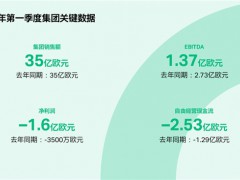據(jù)能源世界7月28日消息,美國(guó)煉油商將公布自新冠疫情以來(lái)的首個(gè)季度利潤(rùn),盡管6月份油價(jià)上漲和利潤(rùn)率下降抑制了分析師因燃料需求反彈而產(chǎn)生的樂(lè)觀情緒。
美國(guó)汽油和柴油燃料需求幾乎已恢復(fù)到2019年的水平,此前在2020年疫情最嚴(yán)重時(shí)期,旅行和商業(yè)活動(dòng)大幅下降。在活動(dòng)復(fù)蘇的背景下,煉油企業(yè)加大了加工力度,但同時(shí)也在努力應(yīng)對(duì)原油價(jià)格上漲的問(wèn)題。今年以來(lái),原油價(jià)格已飆升48%。
美國(guó)三大獨(dú)立煉油商瓦萊羅能源公司、菲利普斯 66 和馬拉松石油公司——預(yù)計(jì)第二季度的合并凈利潤(rùn)約為 6.75 億美元。
這將低于30天前13億美元的利潤(rùn)預(yù)測(cè),分析人士擔(dān)心,疫情的復(fù)蘇將削弱經(jīng)濟(jì)需求。
Cowen and Co分析師Jason Gabelman表示,"市場(chǎng)擔(dān)心第二季度可能是煉油商今年的盈利的峰值。"
美國(guó)原油在本季度上漲了近24%,盡管運(yùn)輸燃料的價(jià)格往往也隨之上漲,但石腦油、瀝青和丙烷等其他產(chǎn)品的價(jià)格往往滯后于上漲,擠壓了利潤(rùn)率。
美國(guó)能源情報(bào)署(EIA)本月早些時(shí)候預(yù)測(cè),2021年美國(guó)液體燃料消費(fèi)量將比2020年每天增加150萬(wàn)桶。第二季度汽油產(chǎn)品供應(yīng)反彈,達(dá)到疫情爆發(fā)以來(lái)的最高水平。
這讓分析師對(duì)即將發(fā)布的報(bào)告感到樂(lè)觀。據(jù)Refinitiv IBES的數(shù)據(jù),全球三大煉油企業(yè)第一季度虧損了13億美元。瓦萊羅將于周四公布財(cái)報(bào),另外兩家公司將于下周公布財(cái)報(bào)。
展望未來(lái),高傳染性新冠Delta變體的傳播正在威脅剛剛開(kāi)始復(fù)蘇的旅行,美國(guó)本周表示,“在此時(shí)”不會(huì)取消任何現(xiàn)有的旅行限制。
Refinitiv Eikon的數(shù)據(jù)顯示,煉油利潤(rùn)率從6月份開(kāi)始下降,月末降至約19.11美元/桶,而第一季度末為20.42美元/桶。
分析師稱,在第二季度,在汽油中混合乙醇也損害了利潤(rùn)率,因?yàn)檫@種以玉米為原料的燃料的價(jià)格較汽油出現(xiàn)了罕見(jiàn)的溢價(jià)。
煉油廠還不得不為美國(guó)可再生燃料信用支付更多費(fèi)用,該季度可再生燃料信用達(dá)到創(chuàng)紀(jì)錄的2美元。可再生識(shí)別號(hào)(RIN)的成本——用于遵守美國(guó)生物燃料混合法的信用額度——從第一季度末的1.32美元增加到6月底的1.54美元,增加了22美分。
根據(jù)法律規(guī)定,煉油廠必須將生物燃料混合到他們的汽油池中,否則就得支付更多的費(fèi)用,以便其他煉油廠也能這樣做。疫情普遍減少了綜合利用效率,因此發(fā)放的信用額度減少,增加了他們的成本。
達(dá)美航空(Delta Airlines)位于賓夕法尼亞州特拉尼(Trainer)的煉油廠7月初在https://bit.ly/3eUmKyP上公布,第二季度營(yíng)運(yùn)虧損1.57億美元,部分原因是在產(chǎn)品中混合生物燃料的成本上升。
裘寅 摘譯自 能源世界
原文如下:
U.S. oil refiners set for first profit since onset of pandemic
U.S. oil refiners are set to post their first quarterly profit since the COVID-19 pandemic, even though higher oil prices and weaker margins in June have tamed analysts' optimism fostered by the rebound in fuel demand.
U.S. gasoline and diesel fuel demand has nearly recovered to 2019 levels following the plunge in travel and business activity during the worst of the coronavirus pandemic in 2020. Refiners ramped up processing on the back of the resurgence in activity, but are also grappling with higher crude oil prices, which have surged 48 per cent this year.
The top three U.S. independent refiners - Valero Energy Corp , Phillips 66 and Marathon Petroleum Corp - are projected to report combined net income of about $675 million in the second quarter.
That would be down from $1.3 billion in profit forecast just 30 days ago, and analysts are concerned that the resurgence in coronavirus cases will undermine economic demand.
"There is a fear that second quarter could be peak earnings for the group this year," said Cowen and Co analyst Jason Gabelman.
U.S. crude has rallied nearly 24 per cent in the quarter, and while prices of transportation fuels tend to pick up in tandem, prices of other products like naphtha, asphalt and propane tend to lag the increase, squeezing margins.
The U.S. Energy Information Administration earlier this month forecast U.S. liquid fuels consumption in 2021 to rise by 1.5 million barrels per day from 2020. Gasoline product supplied rebounded in the second quarter to levels not seen since prior to the pandemic's beginning.
That has analysts optimistic about coming reports, after the top three refiners lost $1.3 billion in the first quarter, according to Refinitiv IBES data. Valero reports its earnings on Thursday, followed by the other two next week.
Going forward, the spread of the highly transmissible COVID-19 Delta variant is threatening the nascent recovery in travel, with the United States saying this week that it will not lift any existing travel restrictions "at this point."
Refining margins started to decline in June, falling to about $19.11 per barrel at the end of the month, compared with $20.42 at the end of the first quarter, Refinitiv Eikon data showed.
In the second quarter, blending ethanol into gasoline also hurt margins as price for the corn-based fuel was at a rare premium to gasoline, analysts said.
Refiners also had to pay more for U.S. renewable fuel credits, which touched a record $2 in the quarter. The cost for Renewable Identification Numbers (RINs) - the credits used for compliance with U.S. biofuels blending laws - increased by 22 cents each to $1.54 at the end of June from $1.32 at the end of the first quarter.
Refiners are required, by law, to blend biofuels into their gasoline pool, or pay up so others can do the same. The pandemic has reduced blending activity generally, and as a result, fewer credits have been issued, increasing their costs.
Delta Airlines' refinery in Trainer, Pennsylvania, in early July posted https://bit.ly/3eUmKyP a $157 million operating loss in the second quarter, in part due to the higher costs associated with blending biofuels into its products.
免責(zé)聲明:本網(wǎng)轉(zhuǎn)載自其它媒體的文章,目的在于弘揚(yáng)石化精神,傳遞更多石化信息,并不代表本網(wǎng)贊同其觀點(diǎn)和對(duì)其真實(shí)性負(fù)責(zé),在此我們謹(jǐn)向原作者和原媒體致以敬意。如果您認(rèn)為本站文章侵犯了您的版權(quán),請(qǐng)與我們聯(lián)系,我們將第一時(shí)間刪除。







